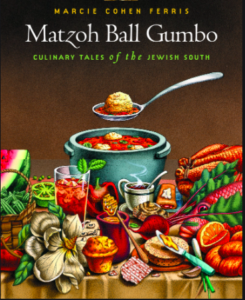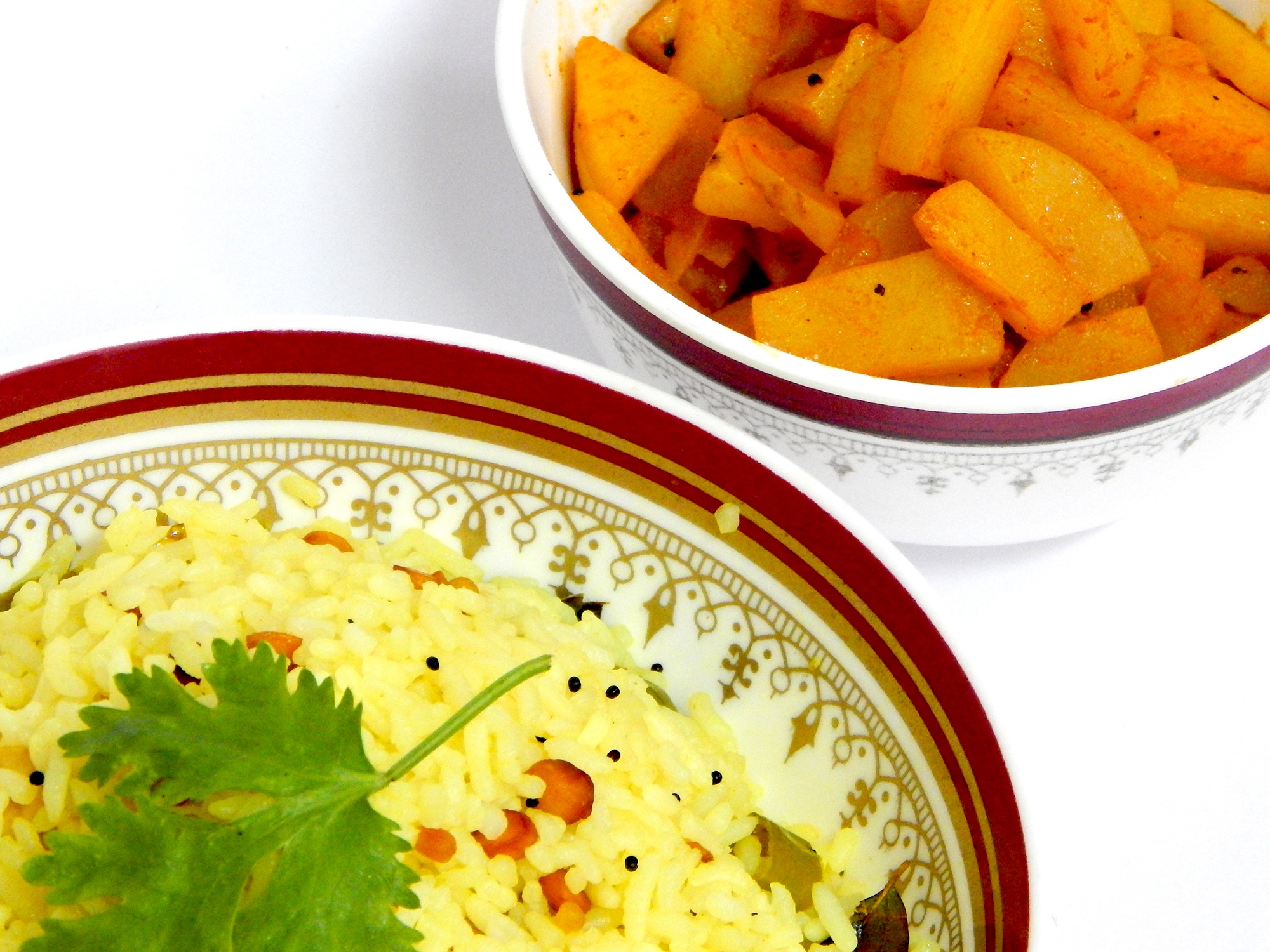My Food Journey
Jesse Haskins
Whether my parents intended or not (probably not), I built my cultural identity around food. I grew up loving my maternal grandmother’s rice dishes. She recognized this as fundamental to her Jewish-Afghanistan heritage. I remember being particularly fond of her “oshi shola” recipe, a recipe of which I still have the basics recorded approximately a decade after I learned it from her, lightly edited below:
Oshi Shola
- Cut onion, chop chicken, then let it cook.
- Grate the carrot if you want or cut it around small pieces
- Add tomato paste or tomato sauce. One small can of tomato paste is too much, but with tomato sauce, one small tomato sauce can, have some water and let it cook.
- Remove from heat, cut cilantro
- Serve over rice with fresh dill and lemon.
On my father’s side, my food journey has been a bit more academic. My father is from Atlanta, so I decided to read Matzoh Ball Gumbo by Marcie Cohen Ferris–a great book that covers the history of Southern Jewish food, sprinkled with recipes. I learned, for example, how during the Civil War, New York Jews and Philadelphia Jews reached beyond their political and geographic allegiances to supply the Jews of Savannah, Georgia with three thousand pounds of matzah–unleavened bread that’s the necessity of the Passover holiday. From the same book, I made spoon bread, a Yiddish recipe consisting mostly of grits and cornmeal.

The point is that food is a heart the heart of so many different cultural identities. The stuff is so profound it united opposing sides in a time of war. Local food systems are vital to our environmental health. And as coronavirus has made painfully clear, local sustainable food systems provide us with economic security. The convergence of these three ecologies–the cultural, the environmental, and the economic–lies at the heart of Ecology Florida’s work. Ecology Florida advances the three ecologies by operating community gardens, seed banks, and farm to table dinners (at least when there is no pandemic). Through each of these activities, Ecology Florida strives to strengthen local food systems to help people connect with cultures, promote environmental harmony, and empower communities economically.


Leave a Reply